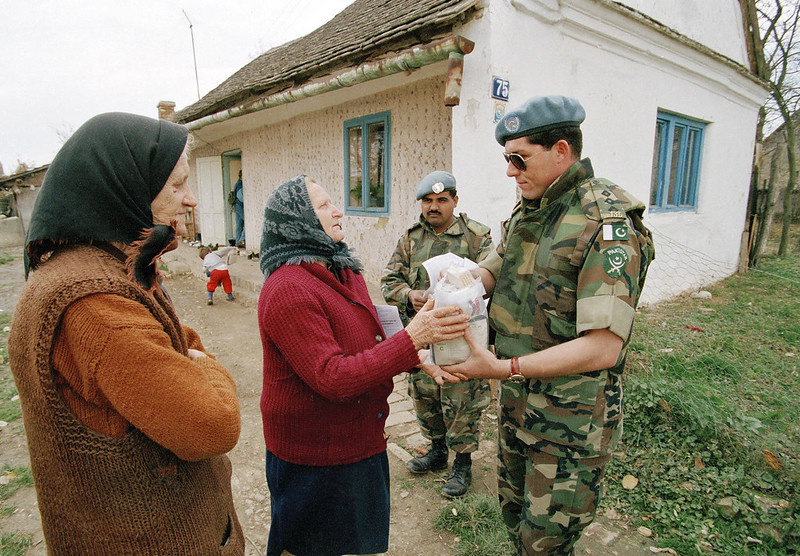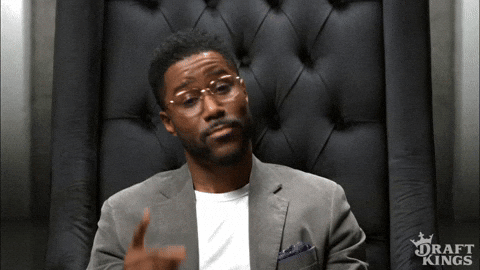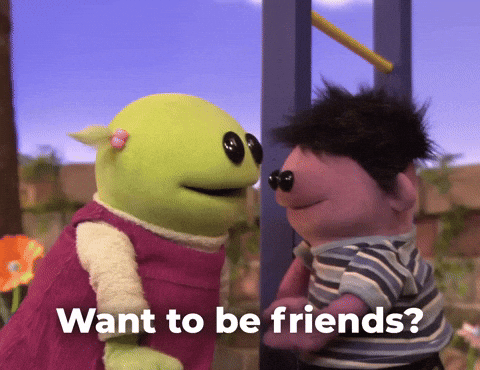In 1945, the world had just endured the bloodiest war in history. World leaders were determined to not repeat the mistakes of the past. They wanted to build a better future, one free from the “scourge of war” so they signed the UN Charter — creating a global organization of nations that could deter and repel aggressors, mediate conflicts and broker armistices, and ensure collective progress.
Over the following 75 years, the UN played an essential role in preventing, mitigating or resolving conflicts all over the world. It faced new challenges and new threats — including the spread of nuclear weapons and other weapons of mass destruction, a Cold War and brutal civil wars, transnational terrorism and genocides. Today, the UN faces new tensions: shifting and more hostile geopolitics, digital weaponization, a global pandemic, and more.
This slideshow shows how the UN has worked to build peace and security around the world:
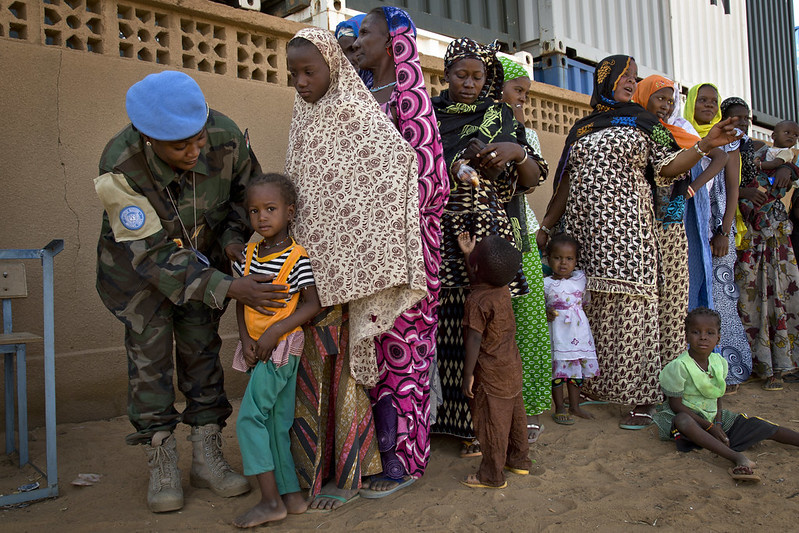
Malians wait in line at a free clinic run by the UN Multidimensional Integrated Mission in Mali in 2014. Over their 75 year history, UN peacekeepers have deployed around the world in military and nonmilitary roles as they work towards human security and peace. Here’s a look back at their history.
Photo credit: UN Photo/Marco Dormino
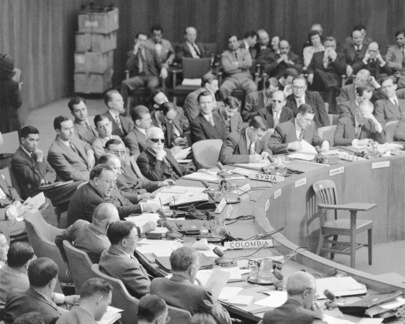
In May 1948, the UN Security Council authorized the first UN peacekeeping mission. It deployed a small number of unarmed UN military observers to the Middle East to form the United Nations Truce Supervision Organization to monitor the Armistice Agreement between Israel and its Arab neighbors. The UN also played an important role in mediating that armistice in the Arab-Israeli war.
Photo credit: United Nations
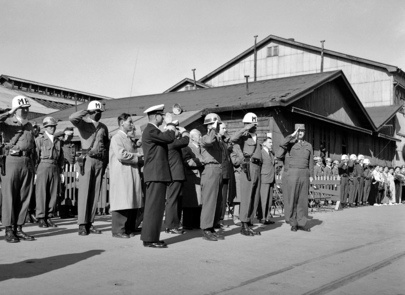
On June 25th, 1950, North Korea invaded South Korea and that same day, the UN Security Council called on North Korea to withdraw to the 38th Parallel. On September 15th, a multinational coalition under a UN banner helped South Korea defend itself.
Photo credit: United Nations
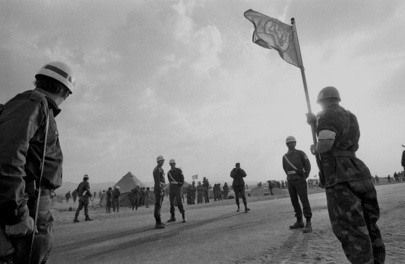
In 1956, the UN Security Council deployed the first armed peacekeeping operation in UN history to address the Suez Crisis in the Middle East – a major evolution in UN peacekeeping.
Photo credit: UN Photo/Yutaka Nagata
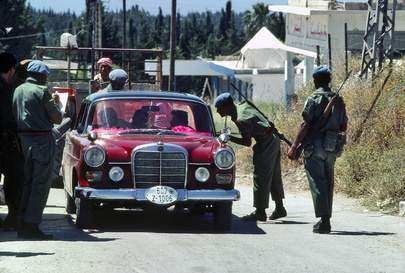
In the 1970s, tensions along the Israel-Lebanon border increased and on March 11, 1978, there was a deadly attack in Israel that resulted in Israeli forces invading Lebanon. The Security Council called on Israel to cease military action and established a UN interim force to confirm withdrawal, restore peace and assist the Lebanese government.
Photo credit: UN Photo/John Isaac
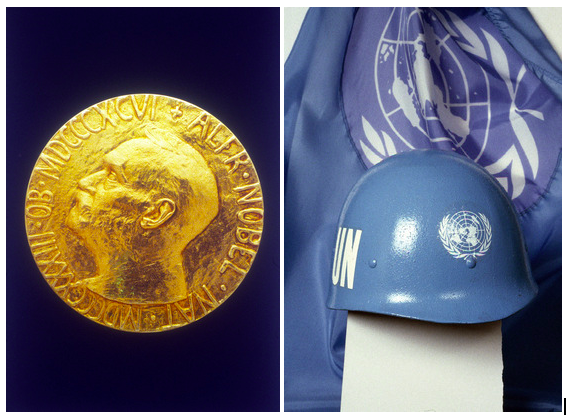
On September 29, 1988, the Nobel Peace Prize was awarded to the UN peacekeeping forces for their work observing armistices, monitoring peace agreements, protecting civilians from harm and human rights violations, and their peace enforcement missions against terrorists and aggressors. In 2001, the UN itself and its Secretary-General Kofi Annan were awarded the Nobel Peace Prize again.
Photo credits: UN Photo/John Isaac and Saw Lwin
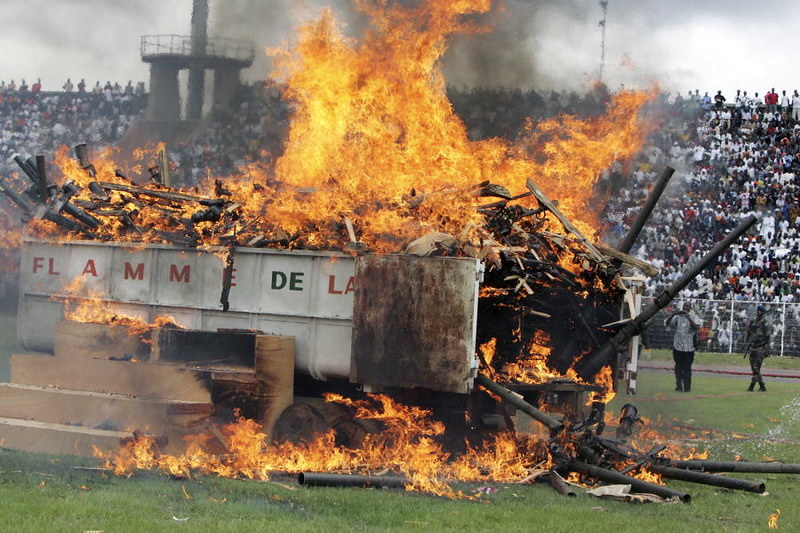
Since its founding, the UN has worked tirelessly toward disarmament – Weapons of Mass Destruction and conventional. These efforts facilitated the negotiation of the Nuclear Non-Proliferation Treaty and the Chemical and Biological Weapons Convention. This work continues today through the International Atomic Energy Agency, the UN Conference on Disarmament, the UN Office for Disarmament and the UN Institute for Disarmament Research, and others. In 2007, the UN was involved in destroying weapons in Côte d’Ivoire as part of the “Flame of Peace” ceremony to signify the beginning of the country’s disarmament and reconciliation process. IAEA inspections are a critical barrier against nuclear proliferation.
Photo credit: UN Photo/Basile Zoma
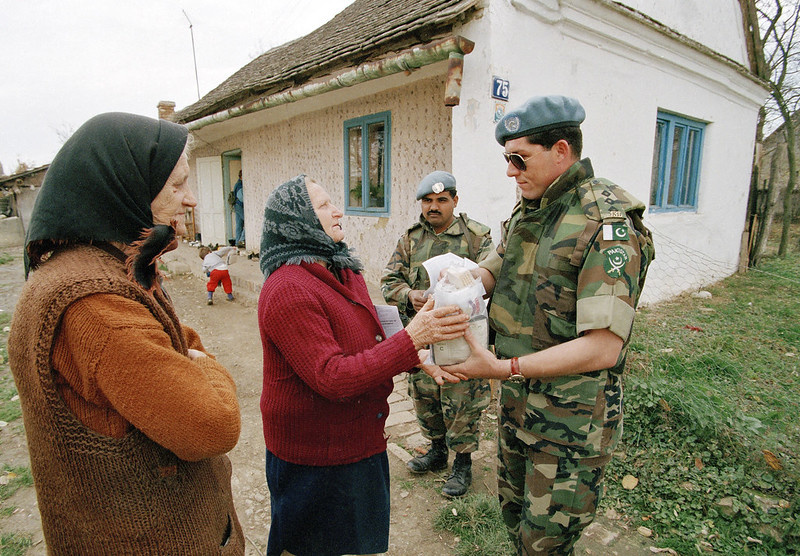
After the Cold War ended, there was a rapid increase in the number of peacekeeping operations. Between 1989 and 1994 alone, there were 20 new operations and the number of peacekeepers grew from 11,000 to 75,000. In the mid-1990s, there were three challenging peacekeeping operations that caused setbacks but the essential role of UN Peacekeeping was soon re-affirmed.
Photo credit: UN Photo/Eric Kanalstein
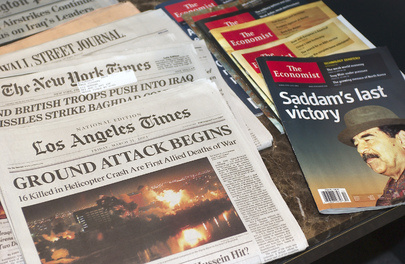
9/11 marked a turning point for the UN in terms of terrorism and proliferation. It began sanctioning terrorists and terrorist organizations and those who proliferated weapons of mass destruction.
Photo credit: UN Photo/Stephenie Hollyman
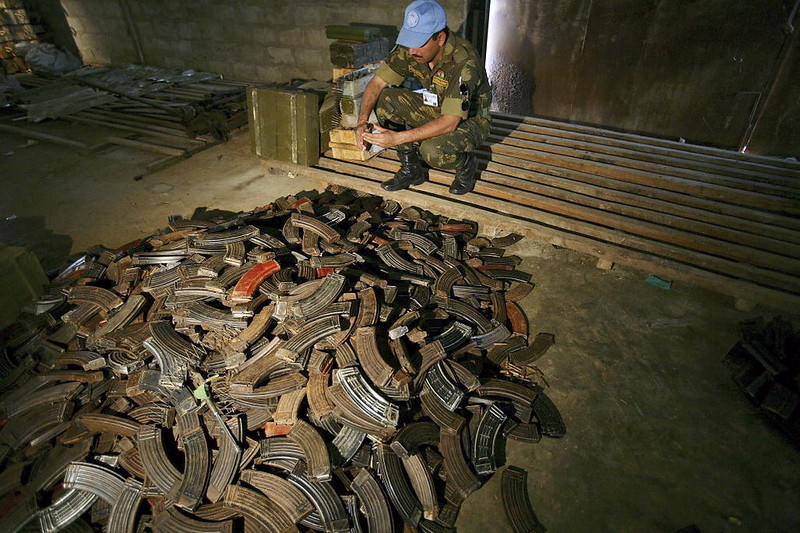
The UN has worked to advocate for the concept of “human security,” which elevates the safety of people above that of territory. In 2015, the Sustainable Development Goals linked security and development. They also enshrined the goal of building peaceful societies and reducing all forms of violence.
Photo credit: UN Photo/Martine Perret
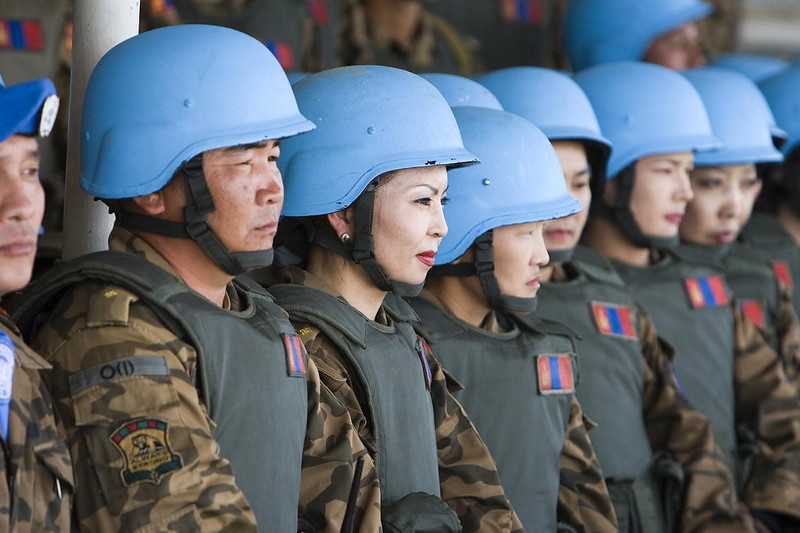
Today, more than 85,000 troops and police from over 120 countries work as part of United Nations peace operations. These operations help to prevent the outbreak or renewal of conflict, build peace, and support countries as they transition out of conflict and/or authoritarianism.
Photo credit: UN Photo/Eskinder Debebe
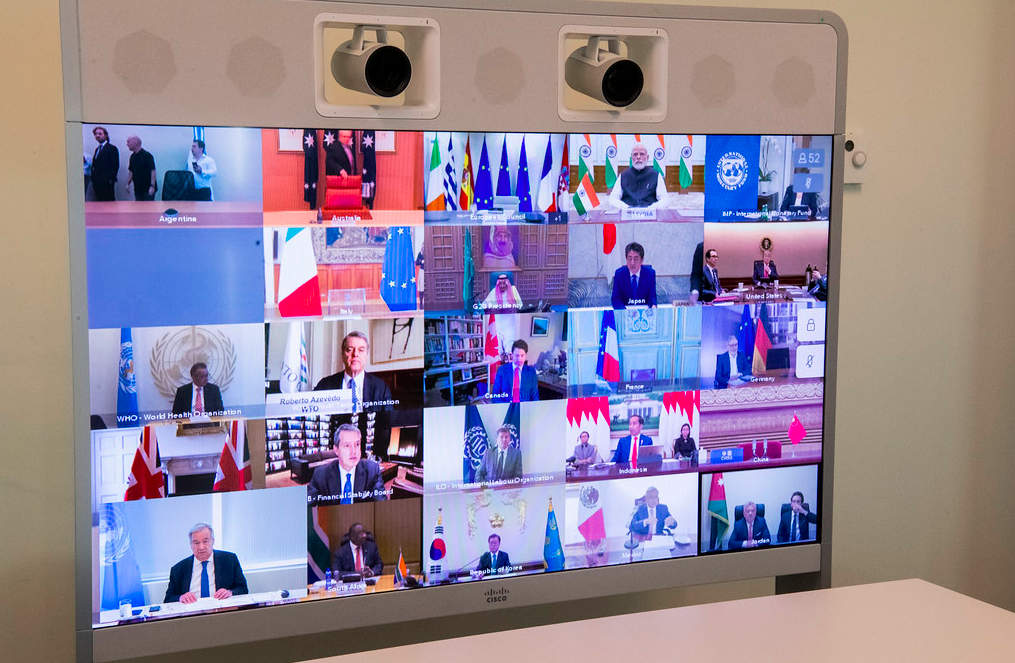
On March 26, 2020, UN Secretary-General António Guterres made an appeal for a global ceasefire and for a focus on “the true fight of our lives.” COVID-19 has fueled nationalist policies and authoritarians’ tightening grip, which threatens to intensify existing conflicts. It is also stressing fragile countries already tackling multiple challenges, including conflict and climate change. An active and effective UN has never been more important as we work to recover from COVID-19.
Photo credit: UN Photo/Evan Schneider

